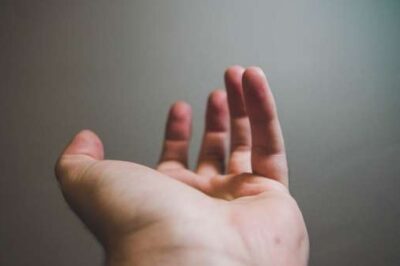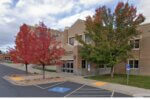Did you know God became man? Did you know Christ saves us from our sins?
For the everyday Christian, these are well-known truths. But rarely do we think deeply on them and grasp what they mean for us. In his book The Book of Mysteries, New York Times best-selling author Jonathan Cahn unpacks the reality of a Savior and how we are to respond as Christ-followers.
The Messiah Has Authority Over Brokenness
Thorns.
“Think about it,” the teacher challenges the narrator, “a crown, a symbol of royalty, power, kingship, wealth and glory … yet made not of gold or jewels, but thorns. Why?”
As we learn, thorns symbolize the curse of a fallen world. When Adam sinned, God said:
“Cursed is the ground on account of you …Thorns and thistles it will bring forth for you” (Gen. 3:17, 18).
Thorns are a sign of destruction, pain, sorrow, sickness, corruption, abuse and other forms of brokenness.
When Christ bore the crown of thorns, He not only bore the weight of the curse. He had authority over the curse, which meant He was able to reverse the curse. This means that only through Christ can those who are fallen be redeemed.
Christ turns what was dead into life—what was thorn and thistles into blossoms.
When we put our trust in God, we are called to bring our wounds, our sorrows, and our thorns to the God who has authority over them.
“Christ has redeemed us from the curse of the law by being made a curse for us” (Gal. 3:13).
The Messiah Is Without Blemish
The Messiah is the Passover Lamb that sets us free from judgment.
In The Book of Mysteries, the teacher leads the narrator to a pasture where a snowy-white lamb is grazing. He stresses how only the blood of a pure, unblemished lamb could have been used to paint the door frame of an Israelite’s home, to keep the “destroyer” from entering.
In order for God’s judgment to pass over us, and for us to be given new life, Christ has to be spotless. Because He is spotless—undefiled, innocent, whole—we now have the power to become likewise.
All we have to do, as the teacher instructs, is to apply the blood of the Passover Lamb to our lives, “to every shame and defilement of your past, your memory, your conscience…”
“Therefore purge out the old yeast, that you may be a new batch, since you are unleavened. For even Christ, our Passover, has been sacrificed for us” (1 Cor. 5:7).
The Messiah Was Made Into the Image of Man
The Messiah suffered on a Friday. The sixth day. The same day that God made man in His image. Except this time, on Good Friday, man made God bear the image of man—guilty, fallen man. When you look at the cross, you see God in the image of man. Arrested. Beaten. Mocked. Stripped naked. Deemed a blasphemer and a criminal.
“Why did God allow Himself to be so abused and degraded?” the narrator asks in The Book of Mysteries.
The teacher answers, “God allowed Himself to bear the image of fallen man, that man might bear the image of the risen God.”
This is the Christian mission: become a reflection of God. He took on your image in His death so that you could take on His image in your life.
“God made Him who knew no sin to be sin for us, that we might become the righteousness of God in Him” (2 Cor. 5:21).
The Book of Mysteries is a daily devotional unlike any other. New York Times best-selling author Jonathan Cahn takes you on a journey uncovering spiritual truth, end-times mysteries and secrets of life. This book features 365 mysteries, including “The Mystery of the Eighth Day,” “The Journey of the Bridegroom,” “The Portal,” “How to Alter Your Past,” “The Face in the Waters,” “The Maccabean Blueprint” and much more. Now available in trade paper.







Leave a Comment
You must be logged in to post a comment.